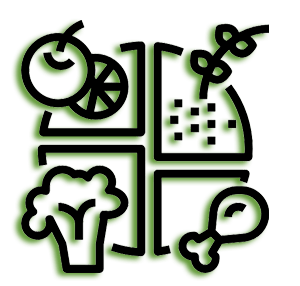
21 Apr TEST YOUR NUTRITION KNOWLEDGE
March is National Nutrition Month. In honor of that, this article is going to focus on nutrition—specifically, your knowledge of nutrition. So how good is your nutrition know-how? Take the quiz below and find out!
1. Which of the following is a good source of fiber?
a. Whole-wheat pasta.
b. White rice.
c. Enriched white dinner roll
d. Mashed potatoes
e. All of the above
2. True or False? Vitamin C is an antioxidant.
3. Nutrients that provide energy (i.e., calories) in the diet are (select all that apply):
a. B vitamins
b. Carbohydrates
c. Fats
d. Proteins
e. All of the above
4. Which of the following is considered to be a healthy fat?
a. Saturated fats
b. Trans fats
c. Monounsaturated fats
d. Polysaturated fats
e. All of the above
5. Which of the following foods is predominantly protein?
a. Black beans
b. Shrimp
c. Lentils
d. Walnuts
e. All of the above
6. True or false? Vegetables mainly consist of protein.
7. Which of the following is an essential part of your diet (that is, your body can’t make it on its own) (select all that apply)?
a. Vitamins
b. Minerals
c. Amino acids
d. Water
e. All of the above
Answers:
1. a. Whole-wheat pasta contains upwards of 7 grams of protein per serving. White rice has been polished, which removes most of the fiber; white dinner rolls are enriched with some vitamins and minerals (which are stripped out during processing) but not with fiber; mashed potatoes (even when prepared with the skin) are not a good source of fiber.
2. True. Antioxidants are substances that inhibit oxidation; therefore, they may help protect the cells in your body from oxidative damage. Antioxidants are associated with a decreased risk of many chronic diseases.
3. b, c, d. Although often touted as giving you ‘energy,’ B vitamins do not contain energy, per se, as energy comes in the form of calories in the diet. The only substances that provide calories are carbohydrates, proteins, fats, and alcohol.
4. c. Monounsaturated fats—found in olives and olive oil, avocados, and nuts and seeds—are considered a ‘healthy fat.’ Hopefully, you know that neither saturated fats nor trans fats are considered healthy. There is no such thing as ‘polysaturated fats;’ but rather ‘polyunsaturated fats’ (we threw you a curve ball there!).
5. b. Shrimp is almost completely protein. While beans, lentils, and nuts all contain protein, beans, and lentils contain more carbohydrates than protein, and nuts contain more fat.
6. False. Vegetables contain mainly carbohydrates. This tends to surprise people, because ‘low-carb’ diets often allow high amounts of vegetables. However, since vegetables are so low in calories overall, the total amount of carbohydrates per serving is also very low. (They also tend to be very high in fiber, vitamins, and minerals, and are filling, so they are a great choice whether you’re on a weight loss plan or not!)
7. e. All of these elements are essential in your diet and cannot be synthesized by the body.
(Technically, there are certain amino acids that are not considered essential, but there are nine “essential” amino acids that are not produced by the body and must be obtained through diet.)


